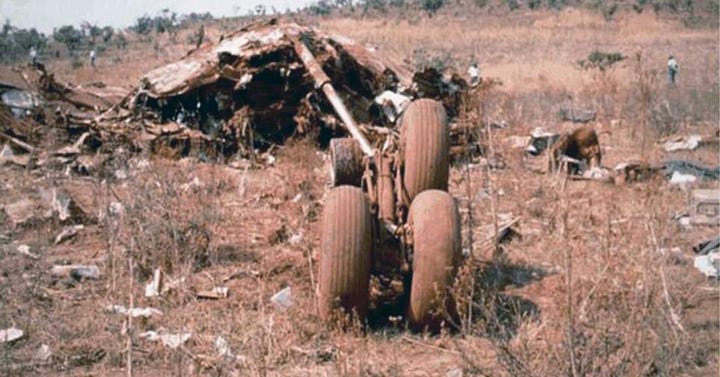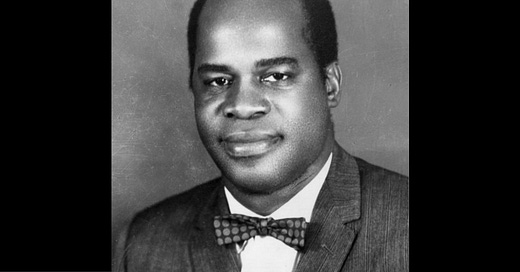To get the most out of this article, check out Part I, Part II, and Part III.
FRELIMO
Mozambique’s democratic socialist ruling party, FRELIMO, was founded on June 25, 1962, on the territory of Mozambique’s northern neighbor, Tanzania, when three organizations—the Mozambican African National Union (MANU), the National Democratic Union of Mozambique (UDENAMO), and the National African Union of Independent Mozambique (UNAMI)—united to form a guerrilla-style organization.
Its founder, Eduardo Mondlane, was noted to be a strong, eloquent man. He would die violently at the organization’s headquarters when he opened a package in 1969—almost a decade before his war of independence saw victory.
His assassination, still a mystery, was blamed on Portuguese state security and RENAMO.
Next in line was Samora Machel, who led the group until Mozambique achieved independence in 1975.
At the advent of its independence, Machel established a one-party state government and served as its president for 11 years before, like his predecessor, he succumbed to a sudden and violent death.

On September 11, 1986, his Russian-built Tupolev 134 presidential plane crashed after he visited Malawi’s dictator, Hastings Banda, and confronted him for his continued affiliation with Apartheid South Africa and their proxy organization, RENAMO.
The meeting was counterproductive and resulted in Machel threatening to place missile systems along Mozambique’s border with Malawi.
He told the press after the meeting: “The South African military use Malawian territory to destabilize, to destroy the People’s Republic of Mozambique. In response, the Mozambican government ‘will put missiles all along the Malawian border. Secondly, we will close Malawi’s route through Mozambique to Zimbabwe and South Africa. Let them find some other route.”
Hours later, he died in a plane crash.
The South African government was implicated in his death because they were suspected of having seen his plane stray off course and into a hill near its border with Mozambique.




The Apartheid regime, during that period, touted a radar system that could see far into its neighboring countries’ airspace, but only informed Mozambique of the crash more than ten hours later, as reported by Mozambique's news agency AIM in December 1986.
The cause of the fatal disaster, it was decided, was Machel’s pilot not reacting to a ground proximity warning. This alleged failure resulted in the deaths of 135 people, including other Mozambican government officials, while only nine people survived the crash.
Joaquim Alberto Chissano, who had served as Mozambique's foreign minister until then, rose to the presidency, filling the political vacuum left by Machel’s demise.
The Berlin Wall Effect
The turn of the decade ushered in conciliatory sentiments. The Berlin Wall came down in 1989, marking the end of the Soviet Union, and the artery of support for FRELIMO was observed to have cooled per a Mozambican newspaper in exile, Zitamar.
On its principal adversary’s (RENAMO) side, things weren’t looking that good either.
South Africa was facing growing unrest and international pressure, so much so that its state President P.W. Botha suffered a stroke.
Its economy staggered under international sanctions while internal resistance mounted. The regime was forced to shift focus from its external interests to its domestic problems.
These circumstances made dialogue an attractive (and inexpensive) alternative to conflict, and in 1992, RENAMO and FRELIMO struck a ceasefire agreement that would end a single-party government state.
Two years later, Chissano won the country’s first election in a contest featuring FRELIMO’s archrival, RENAMO, and made it a state with a multiparty political system—at least in name.
Thanks for catching up on Project Mozambique. You can look forward to the next installment this coming Tuesday.
In 2019, at the final signing of the peace agreement between FRELIMO and RENAMO

Does a demonstration of respect for one mean ignoring the other?
The European Union’s coverage of the event gave an account of Italian politician and EU Ambassador, Fredrica Mogherini’s remarks, which made references to President Nyusi, but said nothing about RENAMO’s leader, Ossufo Momade.
Later in the week, another edition of Unpacking China will drop—this time exploring the legacy of the Sino-Japanese War and how the Xi Jinping regime continues to hold its island neighbor accountable.
OR






